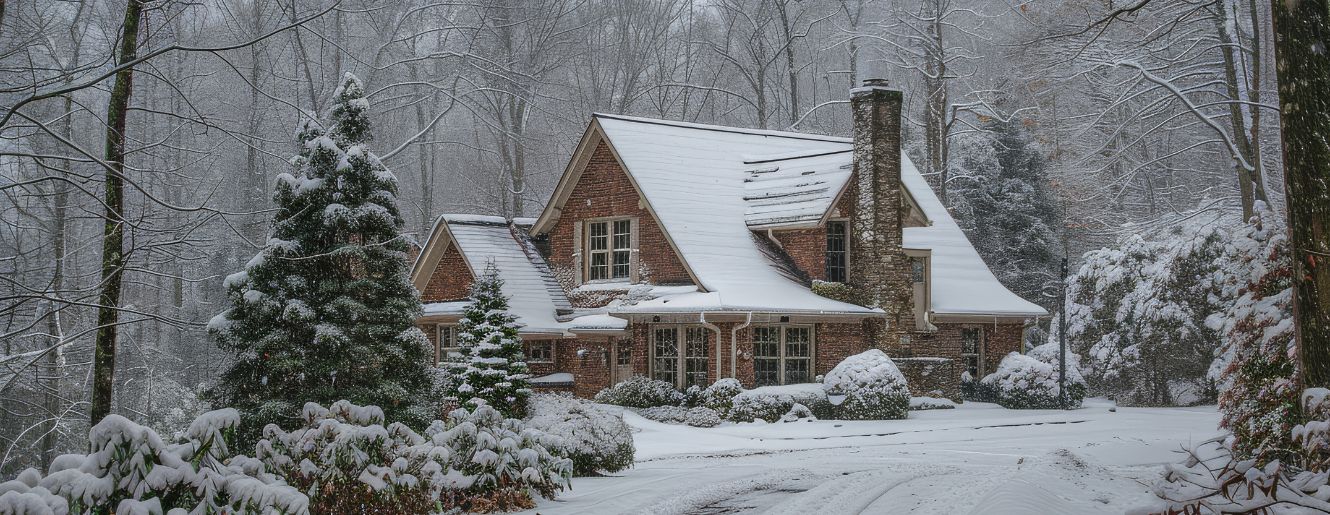
Winterizing Your Vacation Home
Depending on where your vacation home is located in West Virginia or Virginia, the winter months can bring heavy snow, ice storms, and changing temperatures. Harsh weather can damage your vacation home if you haven’t prepared for the cold.
Winterizing your second home will keep it in good shape and help you avoid expensive repairs. Proper winterization measures can also bring peace of mind, safety, and long-term savings. In this article, we’ll cover essential home maintenance tasks for winterizing your West Virginia or Virginia vacation home.

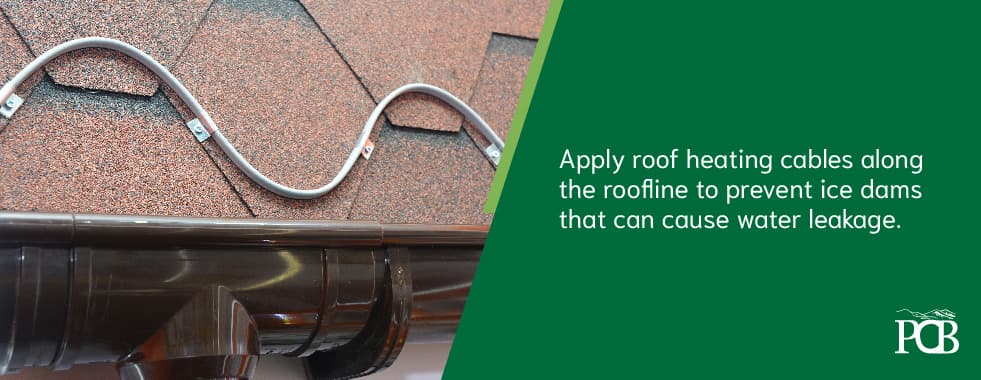.jpg)
Inspect and Repair
No one wants to deal with a leaky roof, blocked gutter, or surprise heating bill in the heart of winter. Get inspections and any needed repairs done before the start of the cold months. This will allow you to enjoy your vacation home all year round, while having peace of mind when you’re not there.
Roof and Gutters
If you live in a part of West Virginia or Virginia that gets a lot of snow over the winter, you’ll want to ensure your vacation home’s roof is in good shape. You may want to have a professional inspect the roof to identify any issues before winter starts.
Along with the roof, you’ll want to clean gutters and downspouts so water can flow freely over the winter. Gutter guards are a more permanent option for preventing blockages from ice dams, leaves, and other debris.
Windows and Doors
Install storm doors and windows to provide an extra layer of protection against harsh winter winds. This will make your vacation home more comfortable over the winter, as well as improving energy efficiency and reducing heating costs.
For additional protection, check for drafts around windows and doors and use weather stripping or caulk to seal any gaps. This will help keep the warm air inside and the cold air out.

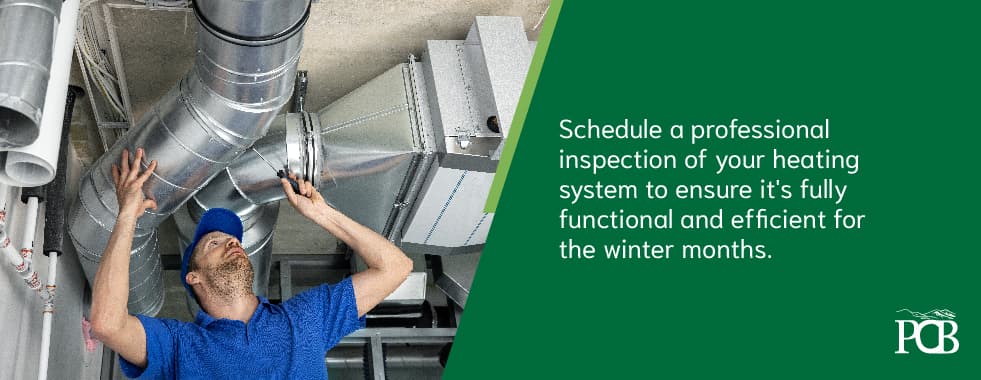.jpg)
Protect Against the Elements
Now we move from your home’s exterior to the interior elements that can be winterized to maintain a comfortable temperature and reduce heating costs.
Insulation
If your second home is located in a colder climate, consider adding extra insulation in attics and crawl spaces. This will help you maintain a consistent indoor temperature and reduce the strain on your heating system. You can also install insulated blinds or curtains to keep warmth inside.
Heating Systems
Routine HVAC inspections should be part of your home maintenance routine for both your primary and secondary homes. Preventative maintenance and cleanings can help prevent furnace breakdowns during the coldest months.
Wood and pellet stoves are also popular for their energy efficiency and cost-effectiveness. Is there anything cozier than sitting next to a wood stove as snow falls outside? These units can also serve as an additional heat source in case of power outages.
Secure Your Home
No one wants to return to their second home after some time away and discover animals or insects living there. Follow these steps to secure your home from pests.
Security Measures
Given the rural nature of many vacation homes in West Virginia and Virginia, you may want to install a reliable security system with remote monitoring capabilities. That way you can keep an eye on your property even when you're not there.
If you do have neighbors, let them know when you’re not there so they can keep an eye out and let you know about any issues or suspicious activity.
Pest Control
Wildlife can be an issue in remote areas. Before you leave your vacation home, make sure to secure trash cans and store food properly to avoid attracting animals. You may also want to use wildlife deterrents to keep pests at bay. Seal entry points in your home, roof, and foundation to prevent pests from entering your home. This includes checking for gaps around pipes, vents, and other openings.

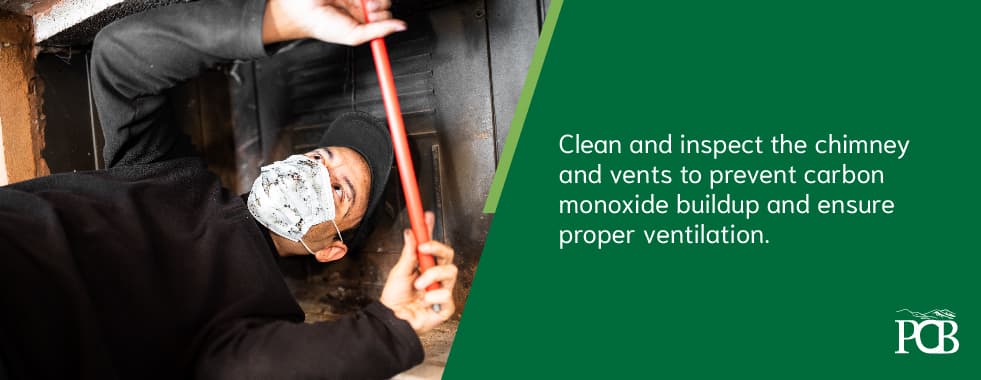.jpg)
Maintain Utilities
Whether you’re there at the time or not, dealing with a burst pipe or other utility breakdown over the winter is no fun. Here’s how to keep the utilities running smoothly at your second house.
Electrical Systems
Power outages can occur during winter storms. Ensure your generator is in good working condition and has enough fuel to last a few days. Perform regular tests to make sure it’s ready to go when needed.
Install surge protectors to protect against power surges during outages. This can help prevent damage to your electrical appliances, electronics, and other systems.
Water Systems
In areas with harsh winters, consider a frost-free yard hydrant . These hydrants are designed to prevent freezing and provide a reliable water source through the winter.
Make sure to also insulate well houses if you have one and cover any exposed well pipes. This will help prevent freezing and ensure your water supply remains uninterrupted. If you’re not planning to return to your vacation home much over the winter, leave your faucet on drop to prevent pipe freezing.
Outdoor Preparation
Let’s go back outside, this time to review your landscaping, equipment, and outdoor furniture.
Outdoor Furniture and Equipment
Store yard equipment like snow blowers and chainsaws, which might be necessary during heavy snowfalls, in an easy-to-reach place. Keep them serviced and ready for use when needed.
Secure outdoor furniture that could be damaged by high winds or heavy snow. Cover or store tables, chairs, and other items to protect them from the elements.
Landscaping
With the potential for ice storms, you should keep trees and bushes trimmed to prevent branches from falling on your home and other structures. Maintaining landscaping will also keep it healthy. Use mulch to protect plant roots and reduce frost penetration. Mulching can also help retain moisture and nutrients in the soil.

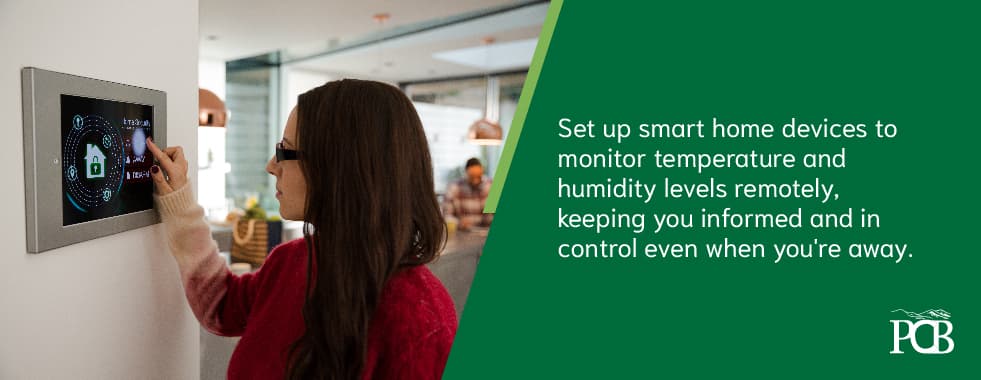.jpg)
Emergency Preparedness
Finally, you want to be prepared for emergencies while staying at your vacation home over the winter.
Emergency Kit
Compile an emergency kit with winter necessities like extra blankets, firewood, and non-perishable food. Consider a battery-powered weather radio to stay informed about local weather conditions. This can be a valuable tool during power outages and severe weather events.
Contact Information
Keep a list of local emergency services and contractors who can assist with winter-related issues. Having these contacts readily available can save time and reduce stress during emergencies.
Identify a nearby neighbor or caretaker who can check on your property during severe weather. Provide them with a key and any necessary instructions for accessing the home.
About PCB
PCB is an independent community bank serving Franklin, Petersburg, and Moorefield, WV, as well as Harrisonburg, Bridgewater, and Staunton, VA. If you need help paying for the home repairs necessary to winterize your vacation home, we can help with a personal loan or HELOC. Contact us today to learn more!


